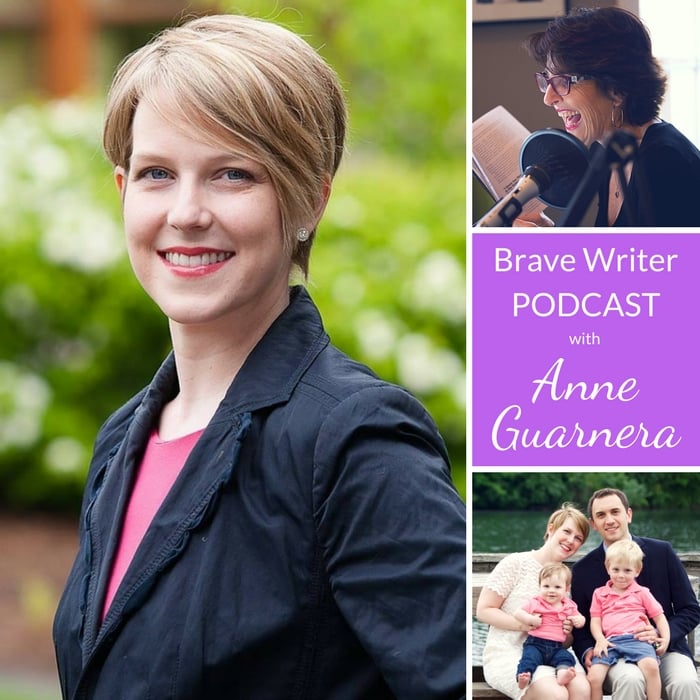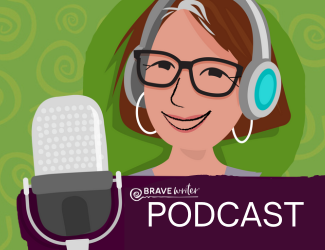Brave Writer Podcast: Integrating Cultural & Language Learning in Your Homeschool with Anne Guarnera

Anne Guarnera has always been passionate about learning, languages in particular. She shares her passion for language learning with her husband, Daniel, and they are now introducing that love of language to their two young sons – and to the rest of the homeschooling community through Language Learning at Home.
In this episode, Anne shares how (and why) cultural learning can be integrated into any homeschool curriculum, even if you don’t speak a second language yourself.
Language Learning
Often, the strategies for learning languages that we use in U.S. high schools are really poor at delivering… well, language learning. You might learn to appreciate the language, but relatively few people graduate their high school French or Spanish classes with a firm grasp of the language.
Anne thinks there are two things missing from traditional language education in the United States:
- The bigger context of why language learning is important.
- The explicit instruction of how to learn a language.
“The point of language learning is to learn how to relate well to other people because we want to be able to understand the world from their perspective, and potentially be changed.” It’s about being able to communicate with those who are different from you, whose lives may vary wildly from your own, and opening yourself up to learning from them and from their cultures. Language learning is uniquely powerful in that it is really about other people and learning to love them.
That human element, that greater context, is frequently lacking – too often, these courses are treated as a competitive academic exercise, or just a requirement on a high school or college transcript.
This is also why it’s important that we make language learning more than memorization and rules. At Brave Writer, we’re always big fans of weaving enchantment into your education, and it’s so easy to do with language learning: make food from the target culture, do Poetry Teatime in the target language, or read picture books about countries where the language is spoken.
If you make connections between the language and the people who speak it, your child will have a “big picture” view of how and why they might actually use the foreign language.
Teaching a Second Language at Home
Although most people in the U.S. only speak English, many of us see the value of raising bilingual kids in an increasingly global world. However, this can feel difficult in a homeschool context, when we don’t have access to a professional language instructor.
Luckily, on Language Learning at Home, Anne focuses on providing resources and strategies for homeschooling families whose parents are not fluent in another language.
The first step, and one of the most important, is helping your children find a motivation for learning their language beyond their high school transcript:
- Help your kids develop a positive mindset for language learning – it’s something to be enjoyed, not endured.
- Model engaged learning by learning alongside your kids.
- Teach them that the skills you pick up from language learning are both life skills and academic skills that can help them learn any sort of new information and make meaningful connections.
This is also an exciting era for language learning at home because technology is making it more accessible than ever – often for free! These are some of Anne’s favorite resources:
- DuoLingo – A gamified approach to language learning.
- Mango Languages – A fun (but not gamified) way to teach grammar.
- Anne has collected even more useful resources in her Learning Language Resources Library.
Would you please post a review on Apple Podcasts for us?
Help a homeschooler like you find more joy in the journey. Thanks!
















